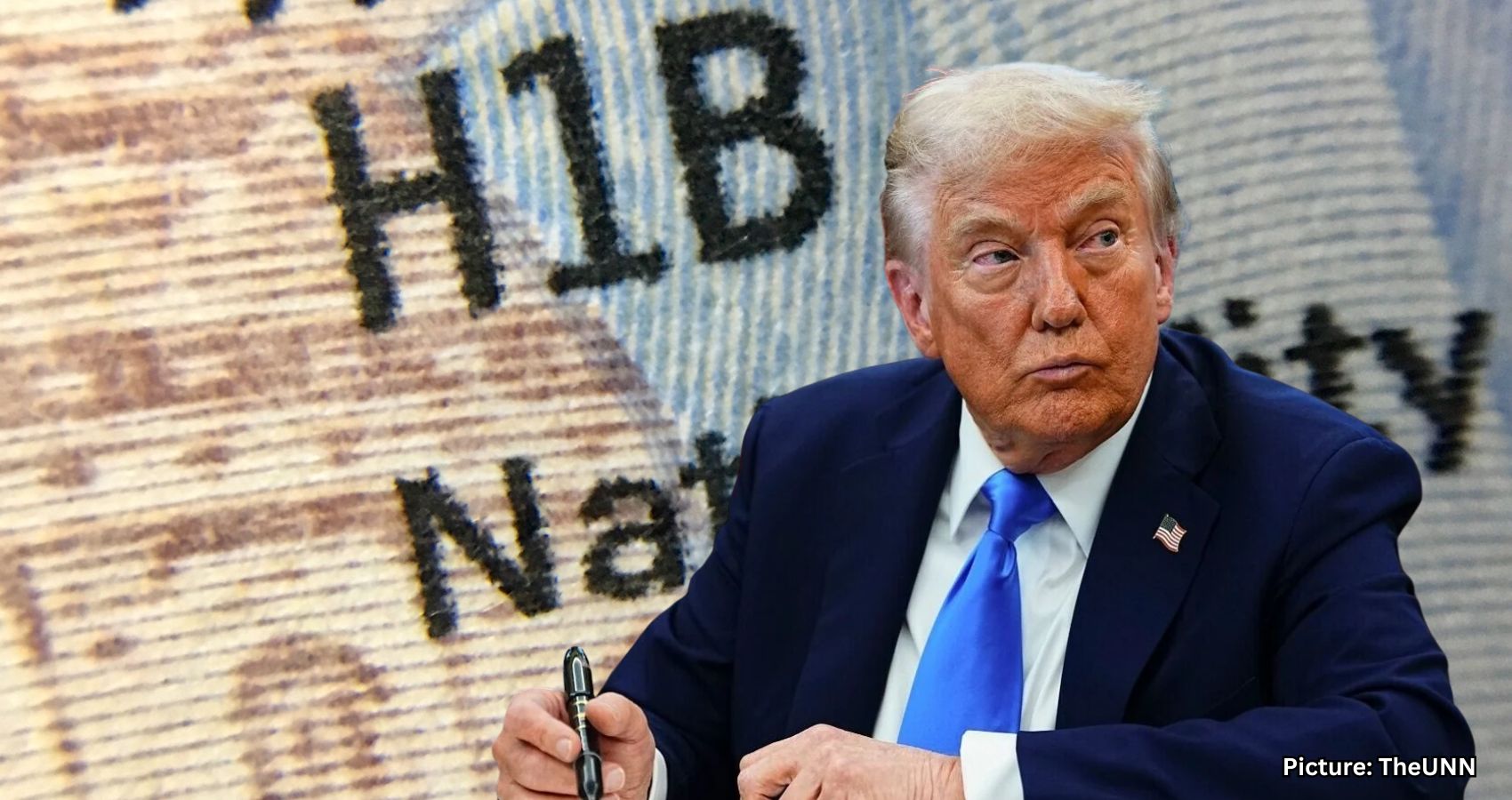The Trump Administration’s recent $100,000 fee for H-1B visa applications has raised concerns among the Indian diaspora, particularly regarding its implications for skilled workers seeking employment in the U.S.
On September 19, the Trump Administration announced a significant change to the H-1B visa program, aimed at protecting American jobs. This new policy introduces a $100,000 fee for certain H-1B visa applicants, a dramatic increase from the previous fee of $215. The change is set to take effect at 12:01 a.m. ET on September 21 and will remain in place for one year, with the possibility of extension.
The announcement has sparked fear and confusion among H-1B visa holders and prospective applicants, particularly within the Indian diaspora. More than 70% of H-1B visas issued in recent years have gone to workers from India, making this change particularly impactful for that community.
The new fee will be required for new H-1B petitions submitted by employers, with the intention of restricting the entry of certain nonimmigrant workers. This measure is part of a broader effort to curb abuses of the H-1B program that allegedly displace U.S. workers.
In a statement released by the White House on September 20, the administration outlined the specifics of the executive order. It restricts the entry of nonimmigrant workers in specialty occupations unless their petitions are accompanied by the $100,000 fee. The Secretary of Homeland Security has been directed to deny approvals for petitions from individuals currently outside the U.S. that do not include this payment, although exemptions may be granted on a case-by-case basis if deemed in the national interest.
Employers will be required to maintain documentation of the payment, which will be verified during the petition process by the Secretary of State. The Departments of State and Homeland Security will deny entry to individuals who do not meet the payment requirement and will take necessary steps to implement the proclamation.
The order also mandates that the Departments of Labor and Homeland Security collaborate on guidance related to verification, enforcement, audits, and penalties. Additionally, the Secretary of Labor has been instructed to revise the prevailing wage levels for the H-1B program, while the Secretary of Homeland Security will prioritize high-skilled, high-paid H-1B workers.
The White House’s statement emphasized the administration’s concern that American workers are being replaced by lower-paid foreign labor. It noted that the share of IT workers holding H-1B visas has increased from 32% in fiscal year 2003 to over 65% in recent years. The administration cited specific instances of companies laying off American employees while simultaneously hiring H-1B workers, further fueling the narrative that the program is being abused.
In response to the announcement, immigration lawyers and advocates have organized webinars and disseminated information to clarify the implications of the new fee. Many companies have advised their H-1B employees to avoid international travel and to exercise caution when considering travel plans.
According to White House spokesperson Karoline Leavitt, the $100,000 fee will apply only to new H-1B applicants and will be charged per petition. It will not affect existing visa holders who are re-entering the country. Leavitt clarified that this fee is a one-time charge associated with the petition for a skilled worker and is not an annual fee.
Current H-1B visa holders outside the U.S. will not be required to pay the new fee to re-enter the country. Leavitt reassured that these visa holders can travel as they normally would, and the new fee will only apply to the upcoming H-1B lottery round, not to renewals or current visa holders.
Immigration attorney Sweta Khandelwal confirmed that the policy specifically targets individuals outside the U.S. at the time of entry. While current H-1B holders are not directly affected, their international travel may be impacted, and they are advised to avoid unnecessary trips abroad. The policy is set to remain in effect for 12 months, through September 21, 2026, unless extended.
Khandelwal noted that employers must document the $100,000 payment and provide proof during the petition process. The Departments of State and Homeland Security will work together to ensure that visas and entry are denied if the required payment is not made. However, there is currently uncertainty regarding how the Department of State will process the payment, even if employers are willing to comply.
As the situation develops, the Departments of Homeland Security, State, and Labor are expected to issue detailed guidance and initiate rulemaking on wage levels and prioritization standards. Legal challenges to the new fee are anticipated as early as September 22, 2025, according to Khandelwal.
To help the community navigate these changes, the Foundation for India and Indian Diasporic Studies (FIIDS) is hosting an online event featuring CPA and Attorney Neeraj Bhatia on September 22 at 9 p.m. EST (6 p.m. PST) to discuss the implications of the new visa fee.
For those interested in attending, registration is available at: http://tiny.cc/FIIDS-Online-RSVP.
Source: Original article

